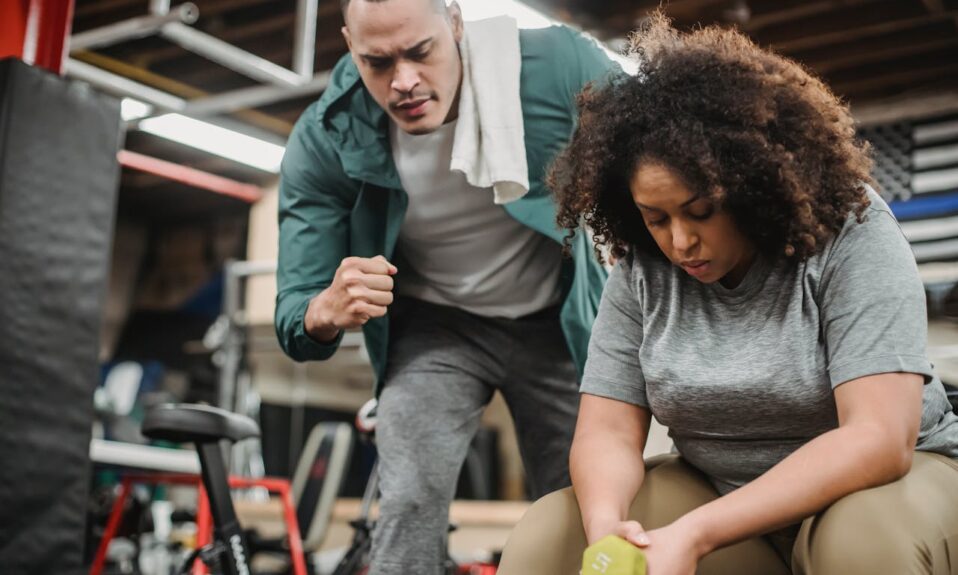In this article, we will discuss the fascinating science behind individual exercise needs. We will explore the unique factors that come into play when determining the most effective exercise regimen for each person. By understanding these factors, individuals can optimize their fitness routines and achieve better results.
What are the genetic factors that influence exercise needs?
When it comes to exercise, genetics play a significant role in determining an individual’s response to different types of physical activity. Certain genes can affect muscle fiber type, aerobic capacity, and other factors that influence how the body responds to exercise. For example, some people may be genetically predisposed to excel in endurance activities, while others may have a greater aptitude for strength and power-based exercises. Understanding these genetic factors can help individuals tailor their exercise routines to align with their natural abilities and optimize their performance.
Furthermore, genetics also influence how the body responds to diet and nutrition, which is closely linked to exercise needs. Some individuals may have specific nutritional requirements that affect their energy levels, recovery, and overall exercise performance. By considering genetic factors, individuals can gain valuable insights into their unique exercise needs and make more informed decisions when it comes to fitness and nutrition.
How does an individual’s lifestyle impact their exercise requirements?
Aside from genetic factors, an individual’s lifestyle also plays a crucial role in determining their exercise needs. Factors such as occupation, daily activity levels, stress levels, and sleep patterns can significantly impact the type and intensity of exercise that is most beneficial for an individual. For example, a person with a sedentary desk job may require a different exercise regimen compared to someone with a physically demanding occupation.
Additionally, stress levels and sleep quality can influence how the body responds to exercise and its ability to recover effectively. Understanding these lifestyle factors can help individuals make adjustments to their exercise routines to accommodate their unique circumstances and achieve optimal results.
What role does age play in determining exercise needs?
Age is another important factor to consider when it comes to individual exercise needs. As we age, our bodies undergo physiological changes that can impact our strength, flexibility, endurance, and overall exercise capacity. Older adults may require different types of exercise, such as balance and flexibility training, to preserve mobility and prevent injury, whereas younger individuals may focus more on building strength and endurance.
Furthermore, age-related changes in metabolism, hormone levels, and recovery mechanisms can influence the way the body responds to exercise and the time needed for recuperation. By taking age into account, individuals can adjust their exercise routines to better align with their bodies’ changing needs and maintain optimal physical function throughout different stages of life.
Are there psychological factors that affect exercise needs?
Psychological factors, such as personality traits, motivation levels, and cognitive function, can also impact an individual’s exercise requirements. For example, some individuals may thrive in group fitness settings, while others prefer solitary workouts. Understanding one’s psychological preferences and motivations can help in choosing the most suitable exercise environment and type of physical activity to ensure consistency and enjoyment.
Moreover, individuals with specific mental health conditions, such as anxiety or depression, may benefit from exercise regimens tailored to support their emotional well-being. Recognizing these psychological factors is essential for developing exercise plans that are not only physically beneficial but also contribute to mental and emotional wellness.
Conclusion
Understanding the science of individual exercise needs involves considering a myriad of unique factors, including genetics, lifestyle, age, and psychology. By acknowledging these individual differences, we can create personalized exercise plans that are not only effective but also enjoyable and sustainable. Embracing the diversity of individual exercise requirements allows us to celebrate the uniqueness of each person’s fitness journey and promote overall health and well-being.
FAQs
1. Can genetics really impact exercise needs?
Yes, genetics can significantly influence an individual’s response to different types of exercise, including muscle fiber type, aerobic capacity, and nutritional requirements. By understanding these genetic factors, individuals can tailor their exercise routines to align with their natural abilities and optimize their performance.
2. How can lifestyle affect exercise requirements?
Factors such as occupation, daily activity levels, stress levels, and sleep patterns can significantly impact the type and intensity of exercise that is most beneficial for an individual. By considering lifestyle factors, individuals can make adjustments to their exercise routines to accommodate their unique circumstances and achieve optimal results.
3. What role does age play in determining exercise needs?
As we age, physiological changes can impact our strength, flexibility, endurance, and overall exercise capacity. Recognizing these age-related changes allows individuals to adjust their exercise routines to better align with their bodies’ changing needs and maintain optimal physical function throughout different stages of life.
4. Are there psychological factors that affect exercise needs?
Personality traits, motivation levels, and cognitive function can impact an individual’s exercise requirements. Understanding one’s psychological preferences and motivations can help in choosing the most suitable exercise environment and type of physical activity to ensure consistency and enjoyment.
5. How can I create a personalized exercise plan?
Creating a personalized exercise plan involves considering individual differences in genetics, lifestyle, age, and psychology. By acknowledging these factors, individuals can develop exercise routines that are not only effective but also enjoyable and sustainable, promoting overall health and well-being.





